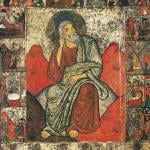Vatican City, Aug 14, 2016 / 03:37 am (CNA/EWTN News).- The Church does not need “cold or lukewarm Christians” who are held back by fear, Pope Francis said Sunday; it needs Christians who are on fire with the Holy Spirit and committed to proclaiming the Gospel, even if it costs them their lives. The Church needs “passionate missionaries, consumed by zeal to bring the consoling Word of Jesus and his grace to everyone,” the Pope said during his weekly Angelus address. “This is the fire of the Holy Spirit,” he said. “If the Church does not receive this fire, or allow it to enter, it becomes a cold or lukewarm Church, incapable of giving life, since it is made of cold or lukewarm Christians.” The Pope expressed his admiration for the many priests, consecrated, and lay faithful, “who, throughout the world, are dedicated to the proclamation of the Gospel with great love and loyalty, often even at the cost of their lives.” Pope Francis delivered his Aug. 14 address to the crowds who had gathered in St. Peter's Square for the weekly Angelus. In his address before reciting the Marian prayer, the pontiff reflected on the themes of the day's Gospel reading, specifically on Jesus' words: “I have come to set the earth on fire.” He explained how the fire about which Jesus speaks is that of the “Holy Spirit, the living and working presence in us from the day of our Baptism.” This fire is a “creative force which purifies and renews,” as it burns away every human misery, egoism, and sin, he said. “It transforms us from within, regenerates us, and makes us capable of love.” “Jesus wants the Holy Spirit to burn like fire in our hearts, because it is only from the heart that the fire of Divine love can strengthen and advance the Kingdom of God,” he said. By opening ourselves completely to the Holy Spirit, we will be given the the “courage and zeal to proclaim to everyone Jesus, and his consoling message of mercy and salvation.” The Holy Spirit keeps the Church from being “held back by fear and calculations” or becoming accustomed to staying within secure confines, Pope Francis said. “The Apostolic courage which the Holy Spirit ignites in us as a fire helps us overcome walls and barriers, makes us creative,” and spurs us along “unexplored or uncomfortable paths, offering hope to those we meet.” “We are called to become ever more a community of persons who are guided and transformed by the Holy Spirit,” the pontiff said. Speaking off the cuff, Pope Francis said the fire of the Holy Spirit brings us to those who suffer from various miseries and problems, including migrants and refugees. Now more than ever there is a need for priests, consecrated men and women, and lay faithful, the Pope said, “who, throughout the world, are dedicated to the proclamation of the Gospel with great love and loyalty, often even at the cost of their lives.” “Their exemplary witness reminds us that the Church does not need bureaucrats or meticulous officials,” Pope Francis said. Rather, it needs “passionate missionaries, consumed by zeal to bring the consoling Word of Jesus and his grace to everyone.” “This is the fire of the Holy Spirit,” the pontiff said, again going off script. “If the Church does not receive this fire, or allow it to enter, it becomes a cold or only Church, incapable of giving life, since it is made of cold or lukewarm Christians.” The Pope encouraged those present to take five minutes to ask themselves whether their own hearts are cold or lukewarm, and if they are capable of receiving this fire of the Holy Spirit. Concluding his address, Pope Francis appealed to the Virgin Mary's intercession that the Holy Spirit might pour on all believers the “Divine fire which ignites hearts, and helps us be in solidarity with the joys and sufferings of our brothers and sisters.” Finally, the Pope remembered the “martyr of charity,” Saint Maximilian Kolbe, whose feast is Aug. 14. “May he teach us to live the fire of love for God and for the other.” Read more













